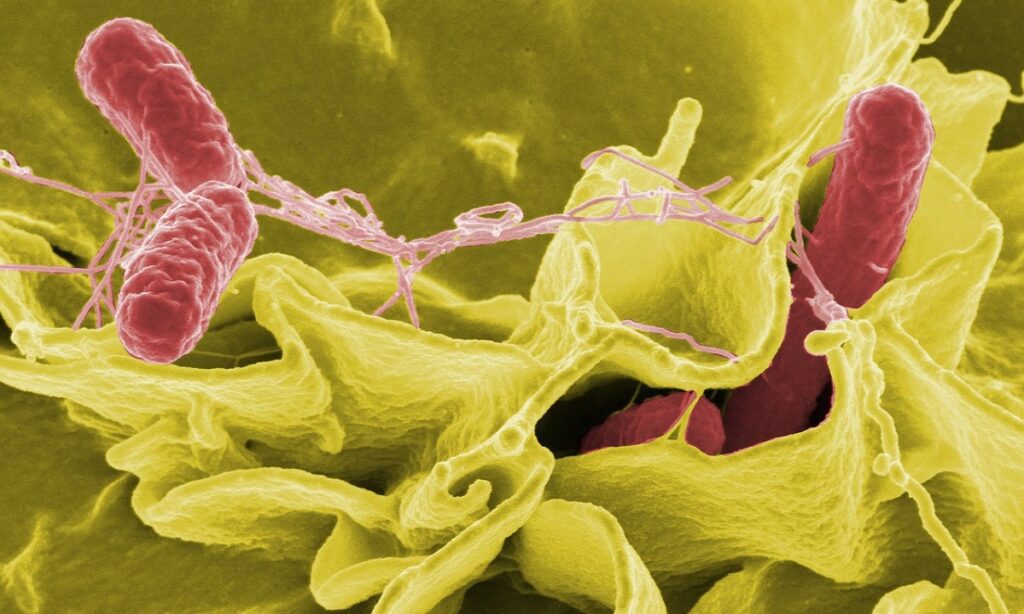In 2020, the consumption of chicken in the United States totaled 100 pounds per capita, which makes this meat the favorite among Americans, according to Statista.
However, poultry is also favorite among bacteria, with chicken responsible for 1 in 5 cases of salmonella infection in the US, too.
Biotech is helping the farmers fight back.
CRISPR-SeroSeq can better identify salmonella
According to the University of Georgia, new technology can improve the detection of salmonella. CRISPR-SeroSeq can identify the molecular signature of the CRISPR regions of the bacteria, which is a specialized part of the DNA.
After poultry companies discovered that the salmonella found on farms is different from the salmonella found in processing plants, researchers at the University of Georgia looked into how these different types of salmonella infect the meat during processing.
According to study findings, the most abundant strain of salmonella in one Georgia farm was the serotype Kentucky, which accounted for 80% of the bacteria discovered.
The more dangerous types of the bacteria detected in the processing plants were also discovered on the farm, but they were practically hidden by the Kentucky string, which is removed during processing.
“The higher-resolution technology used in this research found that multiple salmonella serotypes were present but were typically outnumbered by serotype Kentucky,” said study author Nikki Shariat.
“Our study now provides a framework for how to identify those serotypes. This knowledge provides poultry producers with better data to be able to inform their salmonella control practices,” Shariat continued.
The study also says the CRISPR-based technology will allow for better screening of salmonella, and inform decisions about what types of vaccines to give chickens on the farm, Good Day BIO reports.
How CRISPR is improving poultry
This is not the only way CRISPR biotech can help regarding poultry, says Good Day BIO.
According to The Guardian, researchers in Cambridge and Edinburgh made an attempt to fight the avian flu by utilizing a gene-editing technology that is “a more precise version of the conventional selective breeding of animals.”
The reason for this is the recent outbreaks of bird flu which pose a significant threat to domestic and wild birds, as well as human health, which clearly reveals the need for a One Health approach, Good Day BIO concludes.




